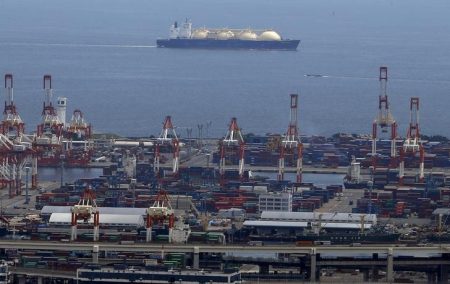By David French
NEW YORK (Reuters) – ConocoPhillips (NYSE:) is considering an offer for CrownRock LP, an energy producer in the west Texas area of the Permian basin, people familiar with the matter said, as consolidation in the sector picks up pace.
Houston-based Conoco, the largest U.S. oil and gas producer after Exxon Mobil Corp (NYSE:) and Chevron Corp (NYSE:), has expressed interest in participating in the sale process for privately held CrownRock, which is valued between $10 billion and $15 billion, the sources said.
CrownRock’s investment bankers have asked interested parties to submit initial offers next week, two of the sources added.
Diamondback (NASDAQ:) Energy, Devon Energy (NYSE:), Marathon Oil (NYSE:) and Continental Resources (NYSE:) are also studying potential bids for CrownRock, the sources said.
No deal with any of these companies is certain and other bidders could emerge, the sources added, asking not to be identified because the matter is confidential.
Conoco, Devon, and Marathon Oil declined to comment. CrownRock, Continental and Diamondback did not respond to requests for comment.
Pressure on oil and gas producers to increase their size through purchases intensified this month after Exxon clinched a $60 billion deal to buy Pioneer Natural Resources (NYSE:) Co and Chevron inked a $53 billion agreement to buy Hess Corp (NYSE:).
CrownRock owns about 86,000 net acres in the northern part of the Midland basin in Texas, which is part of the Permian, the largest U.S. oil producing region. The company is led by Texas billionaire businessman Timothy Dunn and backed by private equity firm Lime Rock Partners.
Conoco was the largest producer in the Permian behind Pioneer and EOG Resources (NYSE:) in the second quarter, with Diamondback and Devon finishing sixth and seventh, respectively.
Bloomberg News reported last week that Devon was considering a bid for CrownRock, and that Devon has also held preliminary talks about a tie-up with Marathon.
Devon and Marathon engaged in deal negotiations in the summer, the sources that spoke to Reuters said. The companies ended talks in August because they could not agree on terms, the sources added.
Read the full article here















